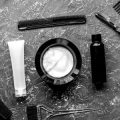Understanding Sustainable Beauty in the UK Context
Sustainable beauty has become a cornerstone of modern British culture, reflecting a growing commitment to ethical values and environmental responsibility. In the UK, sustainable beauty goes beyond simple ingredient lists; it encompasses a holistic approach that considers sourcing, manufacturing, packaging, and social impact. British consumers are increasingly aware of their choices’ effects on both local and global ecosystems, placing pressure on brands to innovate responsibly.
Key Aspects of Sustainable Beauty in Britain
| Aspect | UK-Specific Considerations |
|---|---|
| Ethical Sourcing | Preference for locally-sourced ingredients and fair trade practices |
| Eco-Friendly Packaging | Reduction of single-use plastics and an emphasis on recyclable or refillable solutions |
| Cruelty-Free Commitment | Strict adherence to animal testing bans as per UK legislation |
| Community Impact | Support for British workers, small businesses, and social enterprises |
Cultural Shifts Driving Change
The British public’s passion for sustainability is influenced by a blend of tradition and innovation. There is a strong sense of stewardship for the countryside and urban environments alike. Campaigns such as “Plastic Free July” and influential documentaries have shaped consumer expectations. Moreover, British shoppers are discerning—seeking transparency from brands regarding supply chains, carbon footprints, and philanthropic initiatives.
A Uniquely British Approach
Sustainable beauty in Britain is not just about what’s inside the bottle but also about supporting homegrown talent and celebrating diversity within the industry. This means embracing heritage botanical ingredients like chamomile and rosehip, which thrive in UK soil, alongside championing innovative green technologies developed by British labs. Building an ethical and eco-friendly makeup routine in Britain requires understanding these nuanced cultural values while prioritising products that align with both personal ethics and collective environmental goals.
2. Evaluating Your Current Makeup Habits
Before you embark on your sustainable beauty journey, its essential to take stock of your existing makeup routine. Many Britons are becoming increasingly conscious of the ethical and environmental impact of their beauty choices, making now the perfect time to reflect on your daily habits. Start by assessing how you source products, how you use them, and—crucially—how you dispose of them. A critical review can reveal simple yet effective opportunities for improvement, aligning your routine with eco-friendly and ethical values rooted in the UK’s growing sustainability culture.
Product Sourcing: Local, Ethical, and Cruelty-Free
Check whether your favourite brands are transparent about their sourcing practices. Opt for British or locally-made products where possible to reduce carbon footprint, and look for certifications such as Leaping Bunny or Soil Association Organic. Supporting home-grown brands not only benefits local economies but also often ensures higher standards in terms of cruelty-free and fair trade commitments.
Key Considerations When Sourcing Makeup in Britain:
| Criteria | What to Look For |
|---|---|
| Origin | UK-made or locally sourced ingredients |
| Certifications | Cruelty-free (Leaping Bunny), Vegan Society, Organic (Soil Association) |
| Packaging | Minimal, recyclable, or refillable packaging |
Usage: Mindful Application and Storage
Sustainability extends beyond what you buy—it’s about how you use it. Are you using up products before buying new ones? Are you storing makeup in a way that preserves longevity? In the UK’s variable climate, proper storage can prevent premature spoilage and wastage. Consider creating an inventory system to track expiry dates and avoid unnecessary purchases.
Tips for Reducing Waste Through Usage:
- Use every last bit of product—cut tubes open or repurpose leftover powders.
- Avoid impulse buying; prioritise multipurpose items that suit British weather and style trends.
- Organise your makeup space to keep track of what you own.
Disposability: Recycling and Responsible Disposal
The UK has specific recycling guidelines that differ from region to region. Check with your local council about recycling options for beauty packaging. Many high street retailers like Boots offer take-back schemes for empty containers. Make sure you clean out pots and tubes before recycling, as residue can contaminate recycling streams.
Disposal Options for Common Makeup Items in the UK:
| Item | Best Disposal Practice |
|---|---|
| Plastic bottles/tubes | Clean and recycle where accepted; use retailer take-back schemes |
| Glass jars | Rinse thoroughly and place in glass recycling bin |
| Pumps/compacts with mirrors | Dismantle if possible; check local facilities or return to store schemes |
By evaluating your current makeup habits from a British perspective—considering sourcing, usage, and disposability—you lay a strong foundation for a more ethical and eco-friendly beauty routine that resonates with both personal values and the UK’s sustainability movement.
![]()
3. Choosing Ethical Brands and Products
When building a sustainable and ethical makeup routine in Britain, selecting brands that align with your values is paramount. The UK beauty scene is thriving with local brands committed to vegan, cruelty-free formulations, responsible ingredient sourcing, and eco-conscious packaging. These companies not only meet strict British standards but also reflect a broader shift towards mindful consumption.
British Brands Leading the Way
Supporting homegrown businesses reduces your carbon footprint by cutting down on shipping distances and often ensures adherence to rigorous UK regulations regarding animal testing and sustainability. Many British brands have become pioneers in ethical beauty, making it easier than ever to shop consciously without sacrificing performance or style.
Key Ethical Criteria to Consider
| Criteria | Description | UK Example Brands |
|---|---|---|
| Vegan | No animal-derived ingredients used in any products. | Lush, PHB Ethical Beauty |
| Cruelty-Free | No animal testing at any stage of product development. | Neal’s Yard Remedies, Illamasqua |
| Sustainable Ingredients | Ingredients are ethically sourced, organic, or fair-trade where possible. | REN Clean Skincare, Evolve Organic Beauty |
| Eco-Conscious Packaging | Recyclable, biodegradable, or reusable materials are prioritised. | Lush (naked packaging), UpCircle Beauty |
Shopping Locally and Mindfully
Seek out British brands both online and in local high street shops that clearly label their ethical commitments. Look for certifications such as the Leaping Bunny (cruelty-free), The Vegan Society trademark, and B Corp status for transparent social and environmental practices. By championing these local heroes, you support the UKs growing sustainable beauty movement while ensuring your makeup bag reflects your ethical priorities.
4. Developing an Eco-Friendly Makeup Routine
Curating a sustainable makeup routine is not only a step towards personal wellness but also a contribution to the planet’s health—an ethos increasingly embraced across Britain. To build an eco-friendly makeup bag that suits British lifestyles and seasonal trends, it’s essential to focus on conscious curation, minimalism, and local context.
Practical Steps for a Tidy and Sustainable Makeup Bag
Start by assessing your current collection. Remove expired or rarely used products—less is more when it comes to sustainability. Next, seek out UK-based ethical brands that prioritise recyclable packaging and cruelty-free formulas. Opt for multipurpose products like tinted balms and cream sticks, which streamline your routine and reduce waste.
Eco-Conscious Swaps for Everyday Essentials
| Traditional Product | Sustainable Swap | British Brand Example |
|---|---|---|
| Single-use makeup wipes | Reusable cotton pads & micellar water | UpCircle Beauty |
| Plastic packaged foundation | Glass or refillable foundation bottles | Charlotte Tilbury Refillable Foundation |
| Palm oil-based lipstick | Palm oil-free, vegan lipstick | LUSH Slap Stick Lipstick |
| Conventional mascara tubes | Bamboo or recyclable tube mascaras | Zao Organic Makeup Mascara |
Adapting to British Seasons and Trends
The UK’s varied climate—from misty winters to bright spring days—calls for adaptability in your routine. In cooler months, hydrating formulas with natural oils protect against wind and cold, while summer favours lightweight SPF-infused bases. Keep your kit current by following local beauty trends through platforms like Vogue UK, but always consider the environmental impact of new purchases.
Simplify, Streamline, Sustain: The British Way Forward
A well-edited makeup bag reflects both personal style and ethical values. By choosing quality over quantity, supporting home-grown sustainable brands, and making thoughtful seasonal adjustments, you’ll champion a greener approach that resonates with contemporary British beauty culture.
5. Proper Disposal and Recycling Practices
Adopting sustainable beauty habits in Britain means going beyond product choices to include responsible disposal and recycling practices. Understanding local recycling schemes and available drop-off points is crucial for minimising environmental impact and ensuring your makeup routine remains eco-friendly. Across the UK, councils have different guidelines for cosmetics packaging, so it’s important to check with your local authority about what can be recycled kerbside and what needs special handling.
Understanding UK Recycling Schemes
Most UK households have access to council-run recycling collections. However, many beauty products come in mixed-material packaging that isn’t always accepted in standard household bins. To navigate this, familiarise yourself with the symbols on packaging and consult your local council’s website for specific guidance. Some brands also offer take-back schemes for hard-to-recycle items like mascara wands, compacts, or pumps.
Drop-Off Points for Makeup Recycling
High street retailers such as Boots and John Lewis have introduced in-store recycling bins dedicated to beauty empties. These initiatives accept a range of packaging types, including those not covered by household recycling. TerraCycle programmes are another excellent option, offering drop-off points nationwide for cosmetic waste.
Responsible Methods for Disposal
| Product Type | Disposal Method | UK Options/Examples |
|---|---|---|
| Lipsticks & Mascara Tubes | Specialist recycling or in-store drop-off | Boots Recycle at Boots scheme, TerraCycle |
| Glass Foundation Bottles | Council glass recycling bin (if clean) | Check local authority guidelines |
| Plastic Compacts & Palettes | Brand take-back or specialist collection points | Kiehl’s Return & Recycle, L’Occitane recycling programme |
| Aerosol Sprays | Council metal recycling bin (if empty) | Council household waste centres |
Tips for Responsible Beauty Waste Management
- Clean out packaging before recycling to avoid contamination.
- Avoid flushing makeup wipes or cotton pads; dispose of them with general waste or choose compostable options where available.
- Look for refill schemes to reduce waste altogether—brands like Charlotte Tilbury and The Body Shop offer refills on selected products.
By staying informed about proper disposal methods and engaging with local recycling schemes, you’ll help pave the way for a more ethical and eco-friendly beauty culture across Britain.
6. Community and Advocacy in Sustainable Beauty
Getting involved in the sustainable beauty movement in Britain goes beyond personal choices—its about actively supporting and participating in communities and advocacy initiatives that drive real change. The UK is home to a vibrant network of organisations, campaigns, and local events dedicated to promoting ethical and eco-friendly beauty practices. By joining these groups or attending their events, you can amplify your impact, stay informed about new regulations, and help shape the future of British beauty culture.
Ways to Engage with Sustainable Beauty Communities
| Initiative | Description | How to Get Involved |
|---|---|---|
| British Beauty Council’s Sustainable Beauty Coalition | A coalition bringing together brands, retailers, and consumers to accelerate sustainability in the UK beauty sector. | Sign up for newsletters, attend webinars, participate in public consultations. |
| Sustainable Beauty Events & Pop-Ups | Workshops, markets, and pop-up shops showcasing eco-friendly brands and products across major UK cities. | Check event listings on platforms like Eventbrite or local council websites; attend or volunteer at events. |
| Plastic-Free Beauty Day UK | An annual campaign raising awareness about plastic waste in beauty packaging. | Pledge support on social media, join community clean-ups, or host your own awareness event. |
| Local Zero-Waste Groups | Community-led groups focused on sharing tips and resources for zero-waste living, including beauty swaps and recycling drives. | Join Facebook groups or forums such as Zero Waste London or Edinburghs Eco Warriors; participate in meetups. |
The Power of Advocacy: Make Your Voice Heard
Your voice matters when it comes to shaping industry standards. Support petitions for clearer labelling, cruelty-free certifications, or extended producer responsibility for packaging. Engage with MPs through platforms like WriteToThem, advocating for legislation that favours ethical sourcing and environmental protection. Collective consumer action has already led to bans on microbeads and animal testing—your participation can help drive further progress.
Championing Inclusivity & Local Artisans
The British sustainable beauty scene thrives on diversity and innovation. Seek out independent British brands championing inclusivity, transparency, and low-impact ingredients. Attend makers’ fairs or support local artisans at farmers’ markets—these grassroots efforts are essential for fostering a circular economy within the beauty industry.
Stay Connected & Keep Learning
Follow thought leaders and sustainability advocates on UK-based platforms such as Instagram (@sustainablebeautyuk) or listen to podcasts like “The Green Room” by The British Beauty Council. By staying engaged and sharing your journey with others, you contribute to a culture shift towards ethical consumption—one that’s distinctly British in its creativity, community spirit, and commitment to a greener future.


